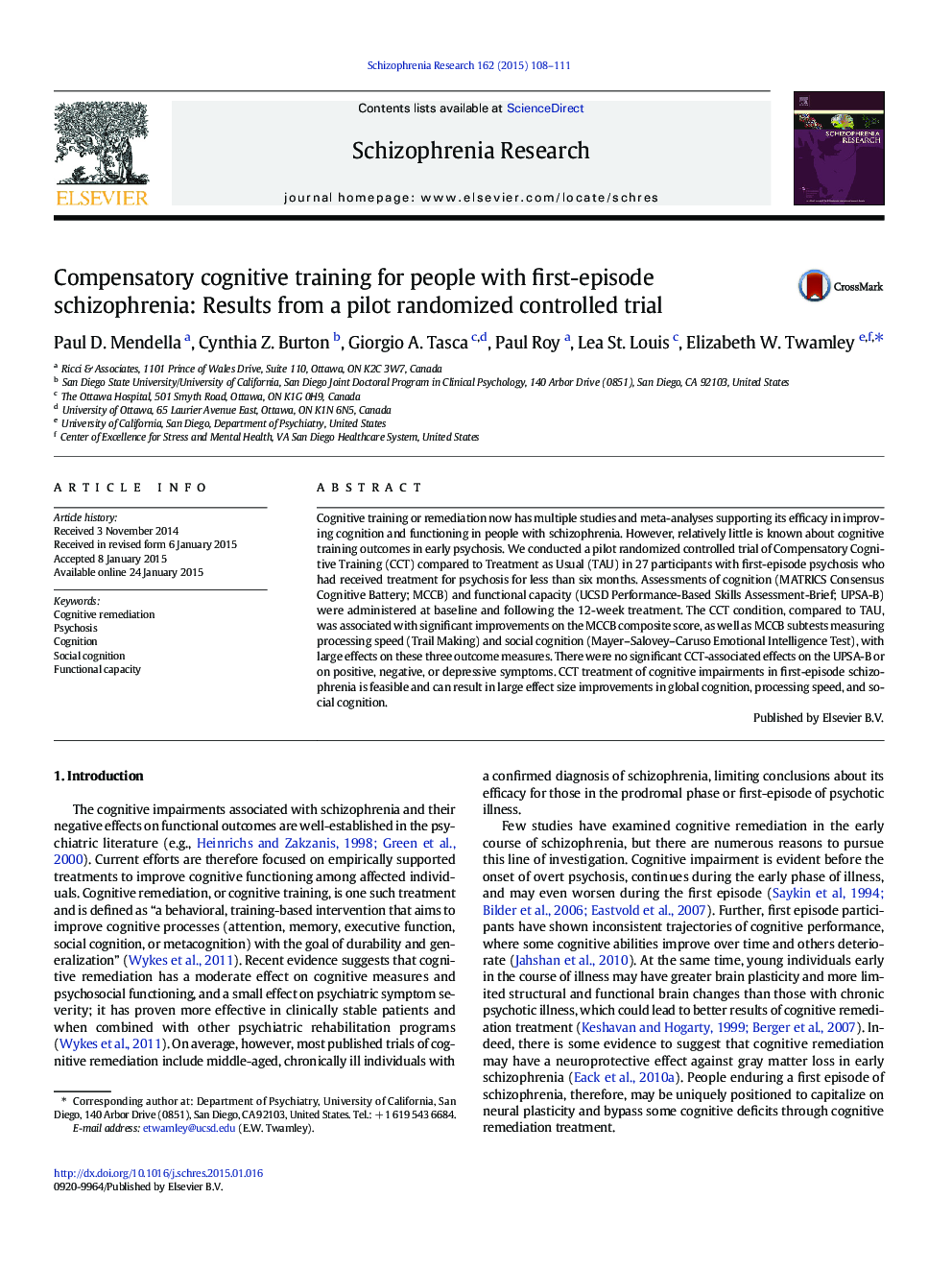| Article ID | Journal | Published Year | Pages | File Type |
|---|---|---|---|---|
| 6824254 | Schizophrenia Research | 2015 | 4 Pages |
Abstract
Cognitive training or remediation now has multiple studies and meta-analyses supporting its efficacy in improving cognition and functioning in people with schizophrenia. However, relatively little is known about cognitive training outcomes in early psychosis. We conducted a pilot randomized controlled trial of Compensatory Cognitive Training (CCT) compared to Treatment as Usual (TAU) in 27 participants with first-episode psychosis who had received treatment for psychosis for less than six months. Assessments of cognition (MATRICS Consensus Cognitive Battery; MCCB) and functional capacity (UCSD Performance-Based Skills Assessment-Brief; UPSA-B) were administered at baseline and following the 12-week treatment. The CCT condition, compared to TAU, was associated with significant improvements on the MCCB composite score, as well as MCCB subtests measuring processing speed (Trail Making) and social cognition (Mayer-Salovey-Caruso Emotional Intelligence Test), with large effects on these three outcome measures. There were no significant CCT-associated effects on the UPSA-B or on positive, negative, or depressive symptoms. CCT treatment of cognitive impairments in first-episode schizophrenia is feasible and can result in large effect size improvements in global cognition, processing speed, and social cognition.
Related Topics
Life Sciences
Neuroscience
Behavioral Neuroscience
Authors
Paul D. Mendella, Cynthia Z. Burton, Giorgio A. Tasca, Paul Roy, Lea St. Louis, Elizabeth W. Twamley,
